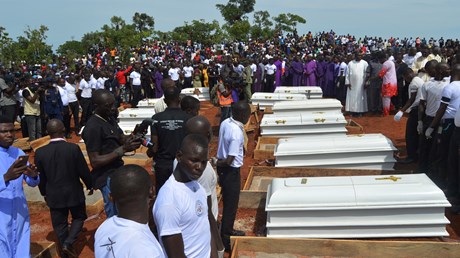How the efforts of global advocacy groups depend on the capacity of local leaders.

Every November, churches around the world dedicate a Sunday for the International Day of Prayer for the Persecuted Church (IDOP).
Unfortunately, it is slightly misnamed—reflecting the significant corrections needed for our efforts in advocacy on its behalf. It should be the International Day of Prayer with the Persecuted Church.
But it also needs an additional adjective.
Christian, secular, and government-led religious freedom advocacy has increased in the last decade, not least with the impetus of the Trump administration. The results, however, remain elusive. Religious minorities continue to face adversity, scapegoating, discrimination, and violence.
We need to renew our understanding of how we can enact change in countries of persecution, so that Christian advocates can remove the severe constraints that impact their ability to witness, make disciples, and live out God’s calling on their lives. After a visit to Nigeria last year, I believe there are three steps that need to be taken for this to happen.
The first step is the creation of well-resourced and professional institutions.
In my five years of interaction with local believers, I have observed that they are not yet equipped to research, document, and report on human rights abuses. Many Western groups advocate for—but not with—Nigerian Christians, while local ministries are generally invited only to co-sponsor statements written by foreigners.
The Christian Association of Nigeria, the most representative national Christian body, is active and vocal. But it lacks the thorough reporting and policy recommendations that can properly influence government actions and inform external lobbying.
Terrorist attacks on church communities are well-known, as well ...
from Christianity Today Magazine
Umn ministry


.gif)

.gif)
.gif)
